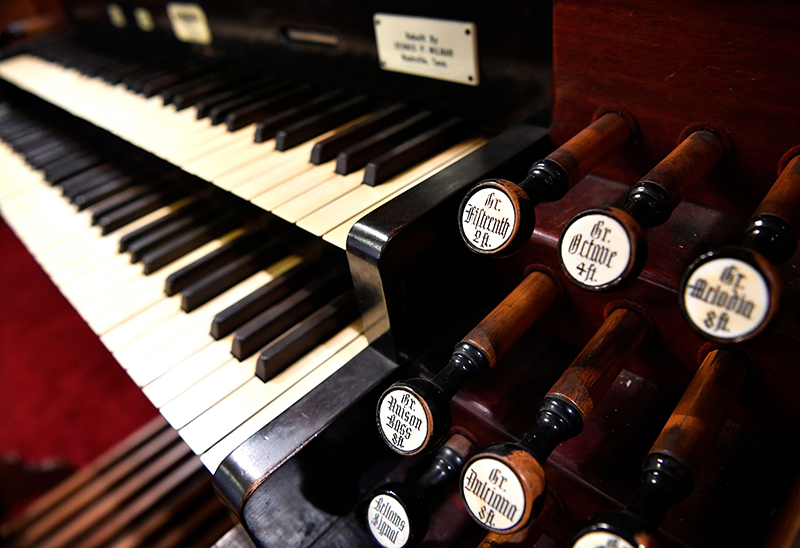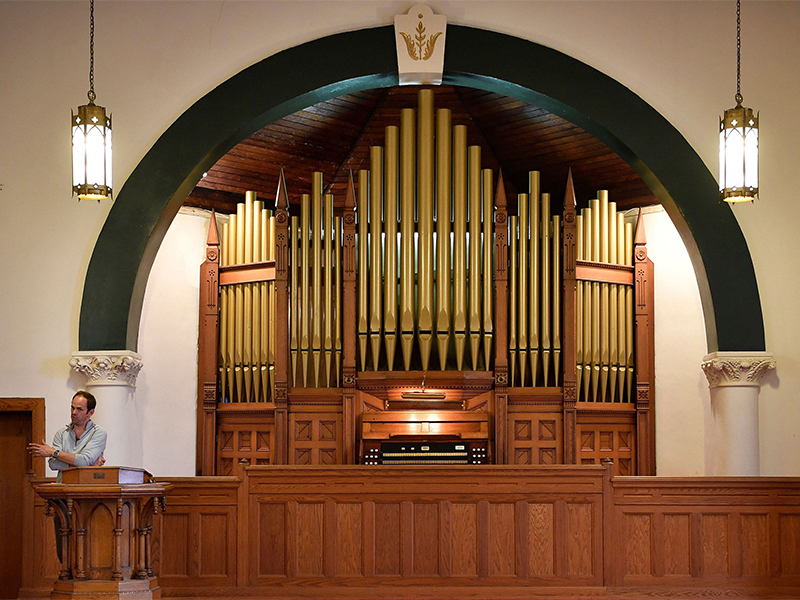NASHVILLE, Tenn. (USA Today) A 112-year-old pipe organ in the sanctuary of a now-closed church needs a new home.
The $500,000 instrument is in good condition and free — if you can pay $10,000 to $30,000 to remove it from the old West Nashville United Methodist Church and reassemble it.
RELATED: Organists declining but still in demand for Easter
But the trouble is that the 1905 George Kilgen & Son pipe organ isn’t alone in needing to be relocated. About 450 other organs are available across the USA, and demand is slight, said Executive Director John Bishop of the Boston-based Organ Clearing House, which helps save high-quality pipe organs from abandonment or destruction.
[ad number=“1”]
“If I have 450 organs listed and I can place 20 a year, I’m doing very well,” Bishop said.

The now-shuttered West Nashville United Methodist Church in Nashville is being converted into an event venue and the building’s new owner doesn’t have plans to keep its 1905 Kilgen and Son pipe organ. The organ is free to anyone who can remove and reassemble it. Photo courtesy of The Tennessean/Larry McCormack
The glut of organs up for grabs is in part a consequence of declining church membership across denominations, he said. Fewer people in the pews can lead to low bank balances and church closures.
Whenever a church closes, staff determine what items in the church may be able to fill a need elsewhere, said Amy Hurd, spokeswoman for the Tennessee Conference of the United Methodist Church.
“We have re-purposed a lot of things,” Hurd said. “Organs are problematic because most of our churches already have an organ and they’re difficult to move.”
[ad number=“2”]
The mechanical organ at West Nashville Methodist was shipped by rail from St. Louis and installed in the church in 1906, said Dan Cook, who earlier this year bought the church that closed last year. He is converting the building into an event venue, and the organ isn’t in the plans.

Dan Cook crawls out from behind the inner workings of a 1905 George Kilgen and Son pipe organ that’s at the now-closed West Nashville United Methodist Church in Nashville. He wants to get rid of the organ but not send it to a landfill. Photo courtesy of The Tennessean/Larry McCormack
“I don’t want to be the guy that sends it to the landfill,” Cook said.
The organ has been maintained exceptionally well through the years. Milnar Organ Co. in Nashville, restored it in 1969 after it had been burned in a fire, founder Dennis Milnar said.
In the decades that followed, Milnar’s company and Fine Tuning of Nashville maintained it, Milnar said.
“It’s a shame to see something like a pipe organ, especially a good one in good condition, go without a use,” Bishop said. “But unless there’s somewhere active to put it and real interest in funding it, organs like that very, very frequently wind up in dumpsters.”
More than dwindling membership in traditional churches is to blame.
The lack of demand is also a result of a rise in a more contemporary worship style that uses guitars and drum sets instead of organs, Bishop said. And less expensive electric organs have supplanted small and mid-sized pipe organs in small traditional churches.
[ad number=“3”]
“It’s a lovely instrument. The woodworking is just fine. Everything works like a charm,” Milnar said. “The organ has no real problems at all.”
(Holly Meyer writes for the The Tennessean)





